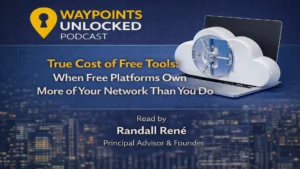Caring Back: How Robust & Flexible PMS is Improving Your Guests’ Arrival Experience

Inconsistent arrival experiences have hounded hotel operators for years—it’s time for technology to even the score by smoothing out the experience for everyone.
By Warren Dehan
Independent hoteliers have a lot of control over their guests’ experience, but the arrival experience to the hotel doorstep is simply out of their hands.
Unfortunately, today’s travel and arrival experience leave much room for improvement. Airlines have had to contend with circumstances outside of their control, from limited available labor to unpredictable weather conditions which have led to increasing numbers of flight cancellations and delays. Travel disruptions often force travelers to make on-the-spot decisions while enroute, increasing stress and exhaustion. Guests who arrive on property late are often tired and ready to get right to their room, turning what should be an exciting arrival into a moment stuffed with varied frustrations.
Travel disruptions can pile up in guests’ minds to create nightmare scenarios at check-in, wherein your hotel can be penalized from the guests’ perspective before they even arrive onsite. However, hotels are in a unique position to turn travelers’ trips around if they have the information and the capability to offer a few personal touches. Using technology, operators can stay up to date on guests’ travel status and provide ways to improve the welcome experience when unexpected challenges arise.
Communication First
Technology plays a multifaceted role in improving the guest arrival experience, but one of the best ways independent hotels benefit is through improved communication with guests. When a hotel’s property-management system is set up to manage the guest experience with an experience management system (XMS), hotel associates can push direct messages to traveler devices in the event of inclement weather or unexpected delays.
Digital communication provides so many benefits it’s almost a necessity today. Guests who can inform a hotel of a late arrival can help hotels stagger their new rooms more efficiently and properly prepare for their arrival. Depending on the severity and reason for late arrivals, hotels can extend late check-in to later at night and prepare certain amenities for guests ahead of time. Small favors such as a sandwich waiting for a guest arriving long past dinner time can help calm travelers’ nerves and reflect positively on the hotel. These interactions can turn a negative arrival into a memorable escape once they arrive onsite.
Hotels can properly plan and act on guest activity when travelers can communicate with them using XMS. This technology allows hotel staff to be proactive in new ways that ensure their actions will have positive outcomes. From these push messages to two way communications between guests and staff, and even post check in surveys to gauge a guest satisfaction early on, weary travelers will now be able to give a hotel a heads-up, and operators will have new options for success when serving them.
Flexibility at the Door
The best way independent hotels can improve the arrival experience today is to use technology to provide guests with more options during check in. While some travelers make it a point to visit the front desk to inquire about the local area, strike up a conversation or follow up on specific requests, many guests often just want to get to their room as quickly as possible.
Contactless technology takes check-in a step further by allowing guests to access their room using their mobile devices with a guest self-serve mobile check in option or bypass the front desk using a check-in kiosk. While no one service will suit every guest’s needs, having these options helps cut down traffic in the lobby while giving travelers more freedom the moment they arrive on property.
Hotels with access to modern PMS capabilities can even offer guests who arrive prior to their room being ready access to the hotel’s amenities by using a soft check in feature. These hotels can offer the guest to charge purchases at hotel restaurants, the spa or charge any amenity directly to the guest’s room. Simply giving these guests access can help travelers feel at home while their hosts put the finishing touches on their full welcome experience. Plus, it opens up a revenue stream while keeping the guest on property.
With the many disruptions taking place during travel today, operators must have compassion for arriving guests. This is particularly true for late arrivals or unexpected no-shows, as the weather could affect their travel plans. Hotels must have access to tools that allow them to quickly pivot from no-shows to offering rooms to those in need and have the room to make that decision. Communication is the best way to overcome a lack of trust in today’s travel experience, and technology is helping operators bridge that gap.
# # #
About the Author

Warren Dehan is the President of Maestro, the preferred Web Browser based cloud and on-premises all-in-one PMS solution for independent hotels, luxury resorts, conference centers, vacation rentals, and multi-property groups. Maestro’s enterprise system offers embedded payments and 20+ integrated modules on a single database, including mobile and contact free apps to increase profitability, drive direct bookings, centralize operations, and enable operators to engage guests with a personalized and safe experience. Maestro’s Support Service provides unparalleled 24/7 North American based live support and education services.









